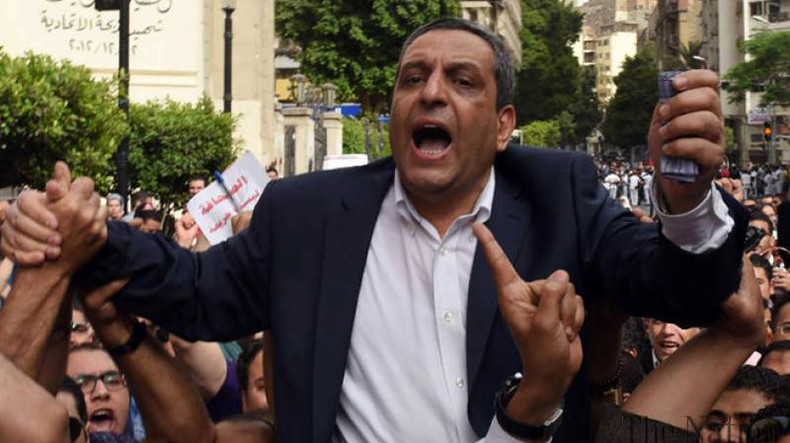
Egypt jails journalists' union chief, two others for 2 years
An Egyptian court sentenced the head of the journalists' union and two board members to two years in prison on Saturday for harboring colleagues wanted by the law and spreading false news, judicial sources and their lawyer said. Reuters reports.
Amnesty International condemned the sentences as "a new stage of a crackdown on media and freedom of expression".
The verdict comes amid efforts by Egyptian authorities to quell rising dissent against army general-turned-president Abdel Fattah al-Sisi as the economy deteriorates.
The journalists' union said late on Saturday it would appeal the verdict against its head, Yehia Qalash, and the two board members, Khaled al-Balshy and Gamal Abdel Rahim. A bail of 10,000 Egyptian pounds($623) has been set for each of them.
"The three of us have been put on trial (but) the target is the whole syndicate," Qalash earlier told reporters.
Dozens of journalists gathered outside the syndicate headquarters in Cairo to protest the verdict, while riot police and armored vehicles filled the streets near the building.
"Down with military rule," yelled the protesters, referring to what they see as the expanding influence of the army under Sisi. Some carried signs that read "Journalism is not a crime".
It is the first time in the syndicate's 75-year history that a head of the union has gone on trial.
Prosecutors ordered the three men to be questioned in May after what their lawyer Sayyed Abou Zeid said at the time was a police raid on the syndicate headquarters to arrest two opposition journalists who had taken refuge there.
The arrests of Mahmoud El Sakka and Amr Badr sparked protests from journalists and Qalash demanded the interior minister be sacked.
The interior ministry denied any police raid had occurred but confirmed the arrest of Sakka and Badr, who work for an opposition website and were wanted on criminal charges.
Egyptian authorities have cracked down hard on the Islamist, secular and liberal opposition alike since Sisi, then the army chief, toppled elected Islamist president Mohamed Mursi in 2013 after mass protests against his rule. Hundreds have been killed and thousands have been arrested, including journalists.
Last year Sisi told CNN in an interview in New York that Egypt has "unprecedented freedom of expression".
Newsfeed
Videos






























